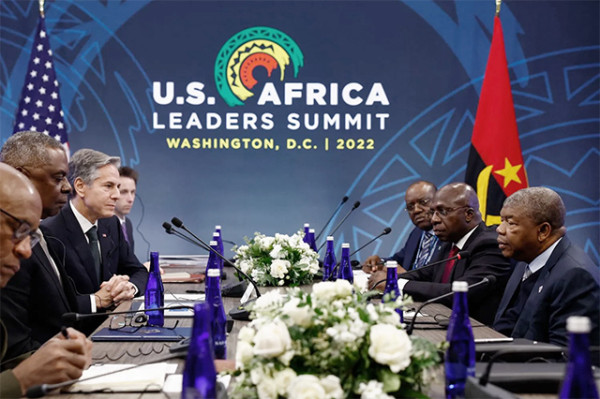
In a landmark diplomatic visit, the presidents of Guinea-Bissau, Senegal, Liberia, Gabon, and Mauritania concluded a three-day summit in Washington with the Trump administration, securing a series of strategic economic commitments spanning mining, energy, infrastructure, and security cooperation.
Held from July 9 to 11, the summit marked the first major engagement between President Donald Trump and African heads of state during his second term. The discussions, framed around the “Trade Not Aid” policy, emphasized private sector-led partnerships and reciprocal economic growth.
Guinea-Bissau: security cooperation and investment drive
President Umaro Sissoco Embaló positioned Guinea-Bissau as a stable gateway for investment. He outlined priority sectors—energy, agriculture, tourism, technology, and infrastructure—and presented the country’s new investment code.
In meetings with the U.S. Drug Enforcement Administration (DEA), Guinea-Bissau expanded its regional anti-trafficking collaboration, while discussions at the American Chamber of Commerce focused on new investment opportunities.
Senegal: bold economic reforms and aeronautics partnerships
President Bassirou Diomaye Faye launched an assertive diplomatic campaign in Washington, advocating for investment in energy, infrastructure, agribusiness, and digital services.
In a pivotal meeting with Boeing’s executive team, President Faye discussed expanding Air Senegal’s fleet and developing local aerospace capacity. He also engaged with the Millennium Challenge Corporation, the IMF, and World Bank officials to strengthen development financing.
At a U.S. Chamber of Commerce roundtable, Faye’s reform agenda won praise. American investors pledged support, and a dedicated Investment Guide for Senegal is now in preparation.
Liberia: mineral wealth and ARREST development plan
President Joseph Boakai emphasized Liberia’s natural resources, calling for U.S. technical support in mapping critical minerals like lithium and rare earths. He invited the U.S. Geological Survey to assist in a nationwide survey.
Presenting the ARREST framework—Agriculture, Roads, Rule of Law, Education, Sanitation, and Tourism—Boakai promoted transparency and economic renewal. He highlighted the significance of Liberia’s new UN Security Council seat and urged investors to join the nation’s transformation.
Gabon: industrial infrastructure and energy development
President Brice Clotaire Oligui Nguema unveiled ambitious plans for national development, centered on the 901 km Belinga-Boué-Mayumba railway, a major new deep-water port, and the Boué hydroelectric dam.
He met with ExxonMobil and Boeing executives and held key meetings at the American Chamber of Commerce, presenting projects in mining, infrastructure, and aviation. Gabon also pursued financing from U.S. development institutions for strategic infrastructure.
Oil sector development also took center stage, with the president holding talks with BW Energy on the new “Bourdon” offshore field, estimated at 83 million barrels.
Mauritania: regional security and ocean economy
President Mohamed Ould Cheikh El-Ghazouani underscored Mauritania’s Atlantic access and its strategic position bridging North and sub-Saharan Africa. He highlighted the country’s iron ore output and fisheries potential.
Meeting with President Trump and U.S. officials, El-Ghazouani praised American peace efforts, particularly in Gaza.
He also held discussions with business leaders and officials to strengthen U.S.-Mauritanian cooperation in security and economic development.
The summit closed with concrete outcomes: technical missions, investment roadmaps, new financing pathways, and a deepened partnership between the U.S. and five African nations eager to transform economic diplomacy into tangible progress.



